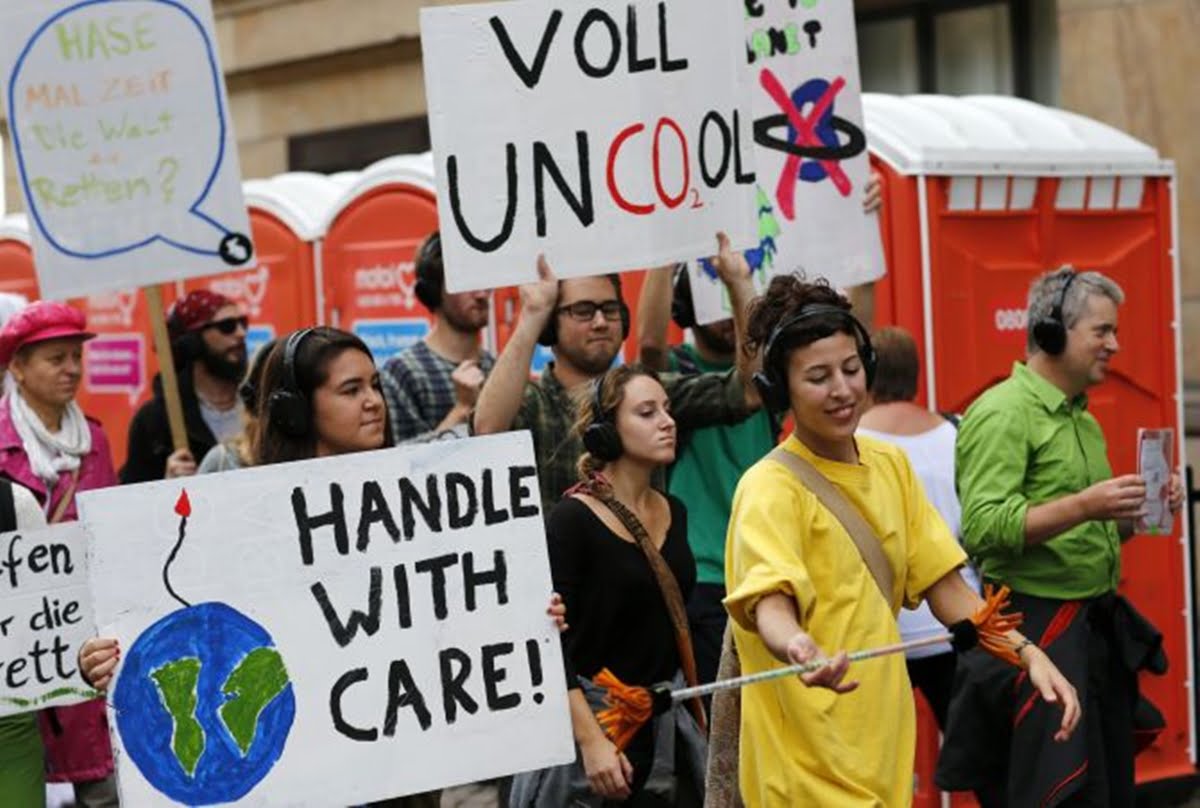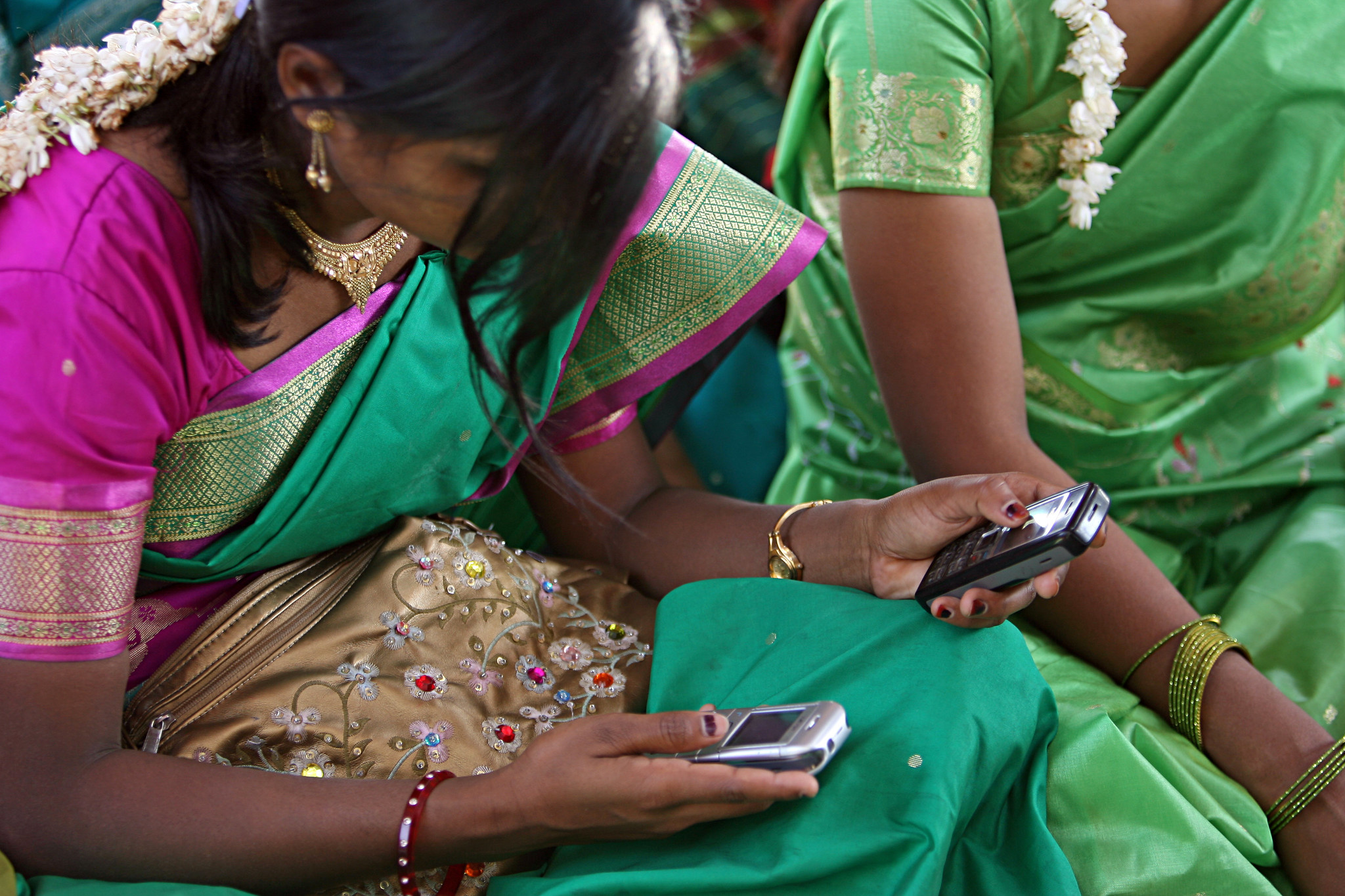Recently scientists working on a marine geoengineering project in the Great Barrier Reef began test trials. An engineered nozzle system sprayed microscopic water droplets into the air above the reef to deflect sunlight from hitting the ocean surface. Researchers working on the project later revealed that the experiment was a tech-driven attempt at cooling the Great Barrier Reef to prevent coral bleaching events from occurring.
Scientists and engineers to this day believe that geoengineering is a much needed technofix solution essential to mend broken biophysical systems and ecologies. Currently, there are several proposals for geoengineering projects underway. The ‘marine cloud brightening project’ described above is the latest to undergo trials.
Environmental groups expressed concern in response to the trials, claiming that projects involving engineered solutions to climate change will only exacerbate existing ecological damage and with it, social and gender inequalities.
We are living in a time where humans have become the single largest geological force. Our dominance over earth’s long-standing biophysical systems have caused irreversible damage, and now, we face the threat of a sixth mass extinction. We are living in a time that many scientists are calling the Anthropocene.
Conceptualised in the 1980s, the idea of the Anthropocene caught the attention of many scientists and engineers. Human-driven planetary damage created a new space for scientific thinking to undo such large-scale ecological destruction. As a result, came the idea of climate engineering or geoengineering as a mechanised solution for manipulating earth’s climate system to mitigate climate change and its adverse effects. Scientists and engineers to this day believe that geoengineering is a much needed technofix solution essential to mend broken biophysical systems and ecologies.
Currently, there are several proposals for geoengineering projects underway. The ‘marine cloud brightening project’ described above is the latest to undergo trials.
Also read: How Indian Higher Education Discourages Women In STEM
The Gender Problem Of Geoengineering
Over the years, ecofeminists have raised concern over geoengineering’s hyper-masculinist approach towards addressing the climate crisis. “Geoengineering is wrong because it is the ultimate expression of patriarchy…Scientists who are playing these games, investors financing it, are doing it without global or local consent, without thinking of the consequences or what it can lead to and without being bound to responsibility. Therefore, it is the ultimate expression of all the destructive tendencies of patriarchy” says Vandana Shiva in an interview.
The idea of fixing damaged biophysical systems through a one-size-fits all engineered approach is dangerous as it may have unintended consequences in different parts of the world. For example, the ‘marine cloud brightening project’ implemented on a large-scale can potentially disrupt precipitation patterns in some parts of the world and pose problems for communities relying on seasonal monsoons. Ecofeminists have pointed out that geoengineering would severely impact natural-resource dependent communities in developing countries, especially women from these communities.
Feminist theorists have also noted that much of the planning for geoengineering has come from western male scientists, raising concern about the underrepresentation of women and scientists from marginalised communities. The current lack of diversity within the field of geoengineering paints a grim picture of future inequalities; it foreshadows the exclusion of women from future decision-making on a geoengineered earth. (Buck, Gammon and Preston, 2013)
Geoengineering, in a way, furthers the imperial legacy of disqualifying those whom imperial governance has always “othered” within humanity. Conceptualised by mostly men from western countries, geoengineering validates the superiority of the ‘western enlightened man’. It makes him ‘take responsibility’ for future decision-making while downplaying expertise from diverse voices within humanity.
Geoengineering Encourages Exclusion
Geoengineering is a purely technocratic solution endorsed mainly by western governments and corporations and seeks to serve a small section of humanity. It ignores the complex histories within humankind along with our varying relationships with ecologies; It alienates indigenous knowledge on climate mitigation to establish the supremacy of western scientific thinking.
Geoengineering is human-centric and fails to acknowledge the various forms of life we share our planet with. It endorses the imperialist narrative of ‘man’s dominance over nature’. “We are all mixed up with other species, we can’t live without them, without intestinal bacteria we can’t digest our food. Without plants and animals, we can’t make a life, we can’t be human” says feminist theorist Anna Tsing in a lecture.
Feminism Offers An Alternative
A 2014 book titled Anthropocene Feminism provides a new outlook for thinking about a feminist future within the Anthropocene. Moving away from western scientific discourse, the book roots for a different future – a future without the ‘western enlightened man’ interfering in ecologies and intricate climate systems. Feminist critique then becomes very important for conceptualising an equitable future that does not involve the hyper-masculinist authority of science and geoengineering.

In Four Theses on Posthuman Feminism, Rosi Braidotti argues for a ‘feminism that is not humanism’. According to Braidotti, feminism should take the lead on future-making discourse by embracing zoe– the idea wherein life is not human-centered but is geo-centered, to include all nonhuman lives. Zoe calls for a species egalitarianism to develop a future wherein human and nonhuman life are valued beyond their utilitarian worth.
Geoengineering: A Gender Issue by Diane Bronson addresses the gender problem within geoengineering – specifically targeting the issue of underrepresentation of women in geoengineering research. Bronson suggests that diversity within the field of geoengineering is not the solution. The only way to secure an equitable future would be to focus on altering existing climate policies. Feminist sensibilities can encourage better climate policies that direct attention to social and economic inequalities rather than focusing exclusively on the technical and biophysical aspects of the climate crisis.
Geoengineering: A Gender Issue by Diane Bronson addresses the gender problem within geoengineering – specifically targeting the issue of underrepresentation of women in geoengineering research.
Also read: Women Rising—Exploring Women’s Agency In Combating Climate Change
Conclusion
Currently in its modelling stages, geoengineering proposals like the ‘cloud brightening project’ are being considered as viable options for tackling the climate crisis. However, it is important to understand that technologies like geoengineering are not the solution to the climate crisis but are the problem itself. Geoengineering is endorsed by the very systems that got us into this planetary mess in the first place. Geoengineering will carry forward the imperial legacy of racism, sexism and ecological destruction if left unchecked. Therefore, it is important now more than ever for feminism to challenge the hegemony of western scientific thinking and take the lead on future-making for all humans and nonhumans.
Tanishka is a graduate from Mount Holyoke College with a BA in Biology and Environmental Studies. She is passionate about political ecology and likes to write about pressing environmental issues in South Asia using a political ecology lens. After graduating from Mount Holyoke, she travelled to Israel, Jordan and Palestine (West Bank) to research energy poverty in the region. Prior to that, she worked for the Center for Science and Environment on air pollution policy in one of the most polluted cities in the world- New Delhi. Currently, she is conducting research on improving the health and well-being of fishing communities in Orissa. Some of her hobbies include playing squash, re-watching episodes of Planet Earth and indulging in some Anthropocene fiction/film/art. She can be found on Twitter and LinkedIn
Featured Image Source: Rediff





Well because of patriarchy our world has become a trashy place. Men have exploited every resources and we are on our way to destroy our planet. I thinks this is the time we give women power and authority to take control of our environment. Because only they know how to save our planet.